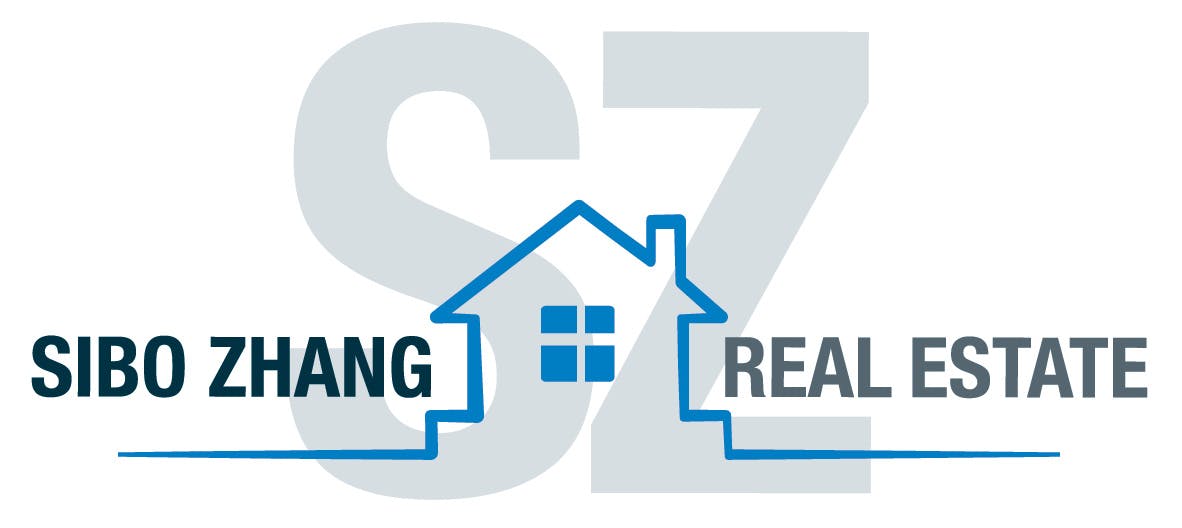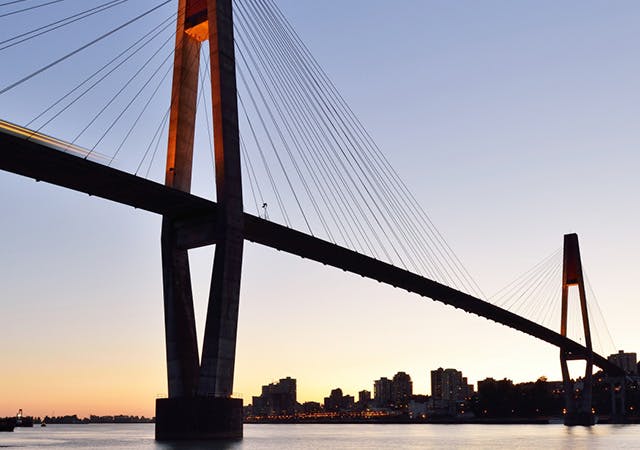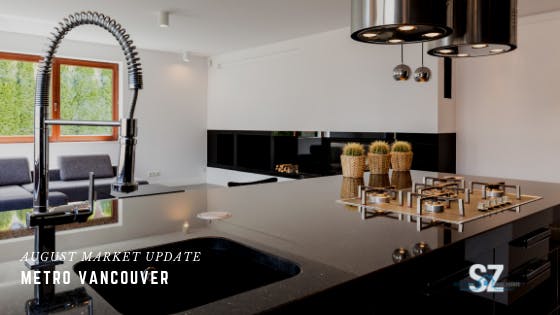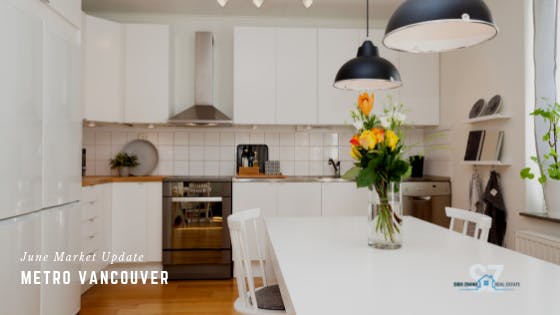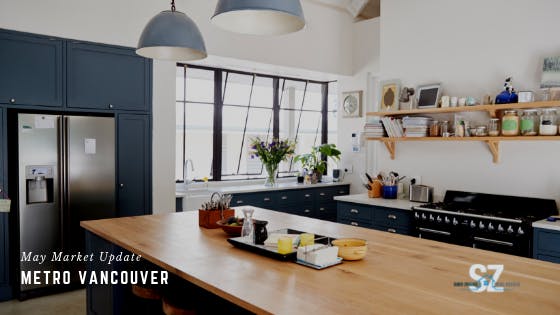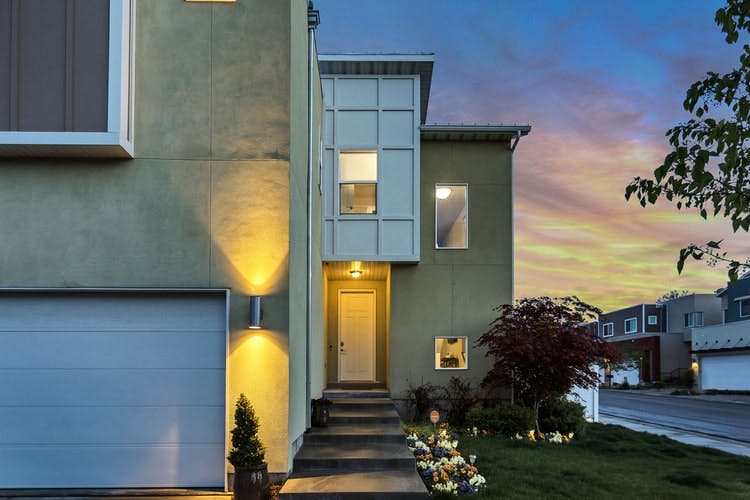As to be expected, home sales across Metro Vancouver showed a steep decline in April due to Covid-19. However, that is not to say that the market is dormant. In fact, considering the impact on normal home shopping activity at this time of year, prices across all property types show a remarkable robustness. The one-month overall decline of 56 per cent in residential ales since March still correlated with a 0.2 per cent increase in the composite benchmark price for the same period. At the end of April the benchmark price rose to $1,035,000. On a one-year comparison, this is 2.5 per cent higher than April 2019 and is line with the steadily increasing prices in an otherwise stable market since October 2019. One persistent decrease, however, is the number of new listings in Metro Vancouver. As reported in this newsletter at the end of last year, there has been a steady decline in the rate of new listings for several years. It is difficult to analyse the factors for the decline in new listings in the current conditions. The basic reason may well be that sellers expect prices to rise significantly from their current level in the foreseeable future. There is still an ample supply to provide a good choice with over 9,300 homes currently listed. But it’s worth watching the supply side. With nearly a 60 per cent decrease in new listings compared with one year ago, and a 50 per cent decrease month-over-month decrease in April 2020, a diminishing supply could be a factor if prices begin to rise more rapidly. However, I would remind anyone who is thinking about selling now that prices have been relatively stable for many months, so by listing now you can get readily noticed. I can advise you from direct market experience how to set an optimal for you home. Please give me call if you want chat.
I am also encouraging anyone who is home shopping to take advantage of the many new online tools to facilitate your search, your financing, and even the purchase process. Online innovations can assist you greatly. Please take a look at the resources included for you on my website at: www.liveincentralcity.ca
If you would like to remain active in your home searching while remaining at home, this one-stop-shop has everything you will need. Here you can easily conduct a search for any property type across Metro Vancouver, with updates loaded every 15 minutes. You will be able to locate the available listed property, its listed price. its street address, and find its location quickly on the interactive map along with a clear picture of the property. You can also create your own custom market comparison and quickly see what sales activity has recently occurred in the neighborhood with data on price changes and comparable properties recently sold. Below I have listed my monthly comparison of benchmark prices for each property type in selected areas of the greater Vancouver region. By comparing benchmark prices provided by the Greater Vancouver Real Estate Board, you can get a good idea of what comparable homes cost in different areas. The selection I have made for you is based on geographical areas immediately above and below the benchmark price to give you a good idea of where prices may most closely match your budget. You will also be able see the most up to date change in prices, whether an increase or decrease since last month’s newsletter. This month I draw your attention to condominium prices, which have decreased in every example.
Detached Homes
The benchmark price for a single-family detached home in Greater Vancouver at the end of May was $1,462,100, an increase of 0.8 per cent from the preceding month. The extremities of this average were Vancouver West (not West Vancouver) at $2,975,400 and Maple Ridge at $844,500. The three municipalities closest to the benchmark on the higher side of the average were: at $1,453,100 an increase of 1.2 per cent from the preceding month; Burnaby South at $1,502,400, an increase of 0.6 per cent from the preceding month; and Richmond at $1,530,500, an increase of 0.5 per cent from the preceding month. The three municipalities closest to the benchmark on the lower side of the average were: Port Moody at $1,443,600 an increase of 1.8 per cent from the preceding month; Vancouver East at $1,430,100, an increase of 0.3 per cent from the preceding month; and Burnaby East at $1,220,400, a decrease of 0.4 per cent from the preceding month.
Townhouses
The benchmark price for a townhouse in Greater Vancouver at the end of April was $796,800, an increase of 0.6 per cent from the preceding month. The extremities of this average were Vancouver West (not West Vancouver) at $1,131,800 and Maple Ridge at $544,800. The three municipalities (excluding Whistler which is too far out more most of my clients) closest to the benchmark on the higher side of the average were: Richmond at $802,300 an increase of 0.9 per cent from the preceding month; Vancouver East at $909,300, a increase of 1.8 per cent from the preceding month; and North Vancouver at $986,100 an increase of 2.0 per cent from the preceding month. The three municipalities closest to the benchmark on the lower side of the average were: Burnaby South at $780,000, an increase of 1.5 per cent from the preceding month; New Westminster at $759,700, an increase of 1.4 per cent from the preceding month; and Burnaby North at $727,100, a decrease of 0.1 per cent from the preceding month.
Condominiums
The benchmark price for a condominium in Greater Vancouver at the end of March was $685,500, a decrease of 0.2 per cent from the preceding month. The extremities of this average were West Vancouver at $995,200 and Maple Ridge at $360,900. The three municipalities closest to the benchmark on the higher side of the average were: Burnaby East at $750,400, a decrease of 2.4 per cent from the preceding month; Vancouver West (not West Vancouver) at $805,900 a decrease of 0.6 per cent from the preceding month; and West Vancouver at $995,200, an decrease of 3.2 per cent from the preceding month. The three municipalities closest to the benchmark on the lower side of the average were: Burnaby South at $673,700, a decrease of 0.2 per cent from the preceding month; Port Moody at $670,900, a decrease of 0.1 per cent from the preceding month; and Richmond at $652,600, a decrease of 0.4 per cent from the preceding month.
Let me help
By working hard for my clients, I stay abreast of the most recent events in the real estate market. This includes monitoring monthly price fluctuations for every property type. If you would like to chat about your needs, whether for selling or buying, I am happy to talk to you. I never pressure anyone, but I can give you honest and informed advice so you can make your best decisions. Please feel free to call: 1 (604) 779-7992
Thanks for reading!
Sibo Zhang, REALTOR®
